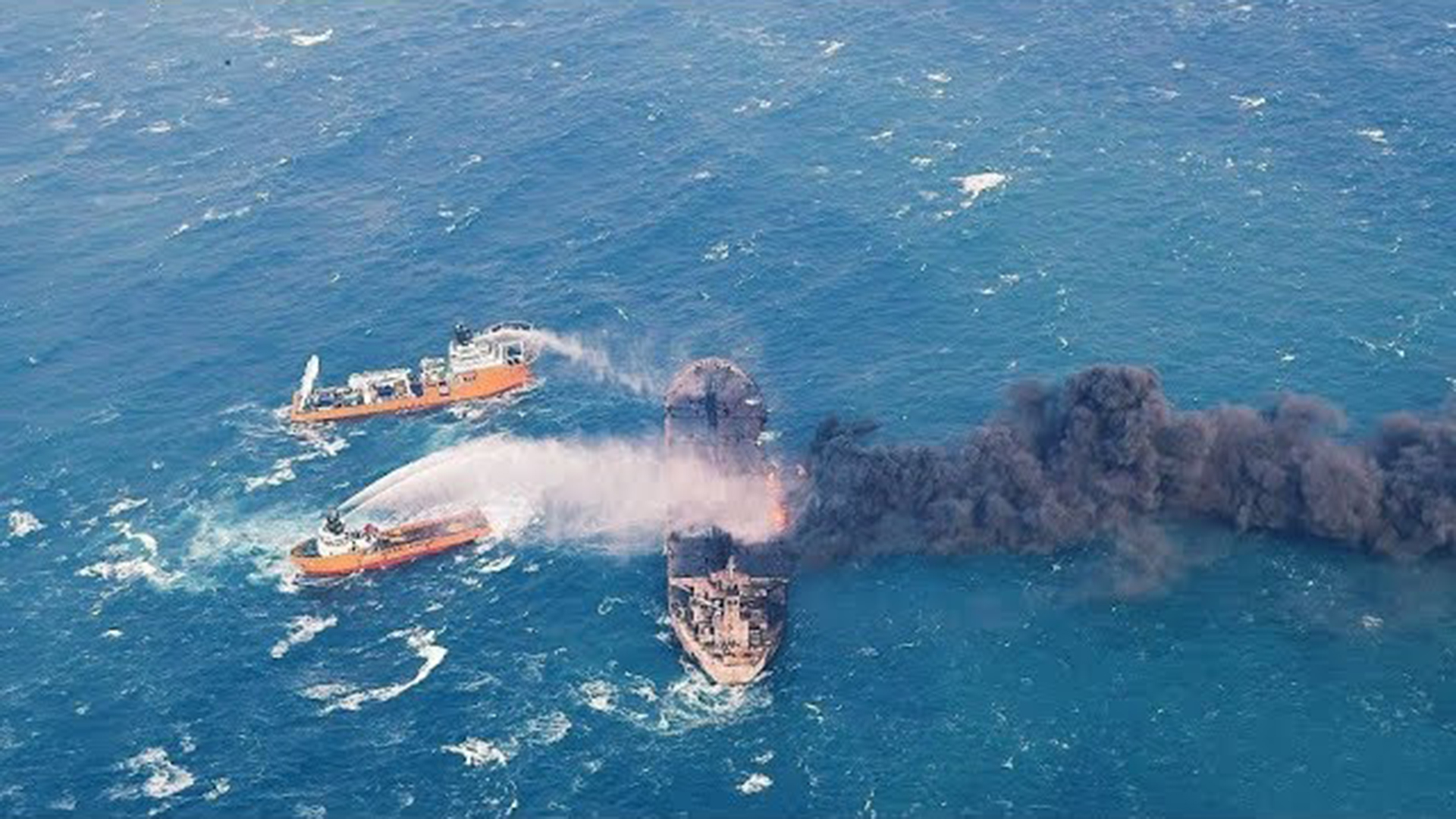

The U.S. government formally re-imposed a series of harsh economic sanctions on Iran on Monday as the Trump administration continues to toughen its stance on the regime and roll back the Obama-era nuclear deal. Swept up in the financial dragnet is an old, rusted oil tanker called the Sanchi, one of hundreds of Iranian ships, individuals, and companies banned from doing business with American interests. Except Bloomberg reports that officials might have trouble finding it: the Sanchi went down in flames and sank to the bottom of the East China Sea in January.
There are over 700 entities on the new sanctions list, available for perusal on the U.S. Treasury’s website. The targets range from individuals to banks to oil tankers, and Bloomberg first noticed that the Sanchi named on the list appeared to be the very same one owned by the National Iranian Tanker Company that sank after a collision with another freighter last winter. A quick check of tracking data and the vessel’s International Maritime Organization number confirmed that was indeed the case.

A Reuters report from January details the ship’s tragic end. The Sanchi was carrying around 1 million barrels of highly-flammable crude oil condensate when it collided with a Chinese freighter hauling grain a few hundred miles off the coast of Shanghai on January 6. The tanker quickly caught on fire and began to burn uncontrollably, drifting for a week before a final explosion sent its crippled hull under the waves.
All 32 crew members, 30 of whom were Iranian nationals, were killed. A great oil slick bloomed over the sea’s delicate ecosystem, the worst toxic spill from a tanker in decades. Though the accident happened in international waters, both Japanese and Chinese officials spent weeks responding to the disaster and trying to stop the oil from reaching their territories. Iran later blamed the Chinese vessel for causing the collision.
Of course, it’s not like the Trump administration is worried about the Sanchi rising from the depths and sneaking off with some illicit crude. This is more a case of someone forgetting to update the list—though frankly, neither conclusion inspires much faith in government bureaucracy.